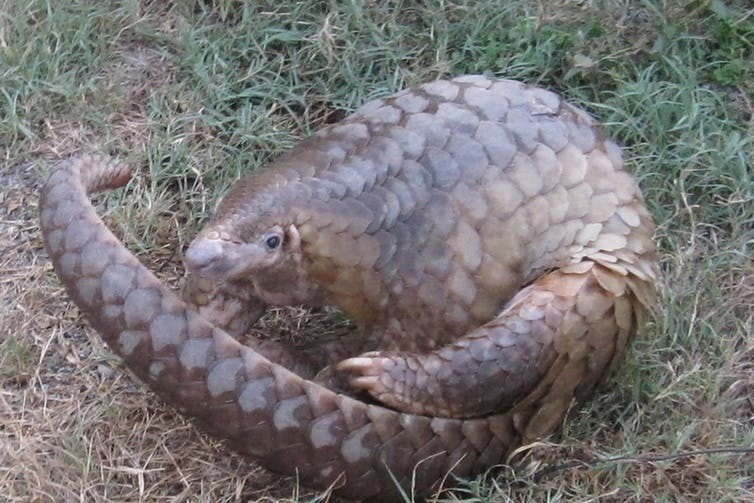| newwil7l said: Eating bats needs to be banned and, offenders should be charged with biological terrorism. How many outbreaks need to happen to get this lesson through people's heads? Bats carry more pathogens than any other species. |
https://foreignpolicy.com/2020/01/27/coronavirus-covid19-dont-blame-bat-soup-for-the-virus/
https://www.health.com/condition/infectious-diseases/coronavirus-bat-soup
According to Foreign Policy, a video recently surfaced of a Chinese woman holding an entire bat with chopsticks, appearing to eat the creature in a soup. The Daily Mail also reported on the video, and YouTube channel RT shared the footage. The clip was reportedly met with outrage from Twitter users, who quickly began calling out Chinese eating habits as the cause of the outbreak.
But here's the thing, per Foreign Policy: That video in question reportedly wasn't filmed in Wuhan or China in general—the woman in the video, who news outlets have identified as Wang Mengyun, is a host of an online travel show who was actually eating a dish in Palau, an island country located in the western Pacific ocean. The video was also reportedly filmed in 2016
Overall, the origin of the novel coronavirus is still filled with what-ifs and maybes, but according to most reports, it's likeliest that bats (and possibly snakes) are to blame as the animal carriers of 2019-nCoV—but as far as "bat soup" is concerned, it's just an extremely misinformed (and potentially xenophobic) rumor.
Bats are more of a popular dish in Indonesia, not China
https://www.reuters.com/article/us-china-health-indonesia-bats/bat-meat-still-popular-in-parts-of-indonesia-despite-coronavirus-fears-idUSKBN20511R
As for covid19's true origins, still a hunt
https://www.weforum.org/agenda/2020/03/coronavirus-origins-genome-analysis-covid19-data-science-bats-pangolins/
Originally, scientists believed the virus may have developed in bats, and later pangolins. However, genomic comparisons suggest that the SARS-Cov-2 virus is the result of a recombination between two different viruses, meaning the exact origin of the virus is still unclear.
In December 2019, 27 of the first 41 people hospitalised (66%) passed through a market located in the heart of Wuhan city in Hubei province. But, according to a study conducted at Wuhan Hospital, the very first human case identified did not frequent this market. Instead, a molecular dating estimate based on the SARS-CoV-2 genomic sequences indicates an origin in November. This raises questions about the link between this COVID-19 epidemic and wildlife.
https://www.rte.ie/news/2020/0331/1127645-was-the-pangolin-the-source-of-the-covid-19-outbreak/
An insightful documentary shown on RTÉ Two on Sunday night highlighted the plight of the pangolin, a shy, scaly animal found in Asia and Sub-Saharan Africa, which has the unfortunate title of the world's most trafficked mammal.
A 2016 report by animal charity, WildAid, estimated that one million pangolins were taken from the wild in the preceding decade.
The nocturnal, solitary creature is often compared to a scaly anteater. It has no teeth and survives on a diet of insects it consumes with the aid of its extremely long tongue.
All eight of the subspecies of pangolin are protected under national and international law, but illegal trade in the animals continues and two types of pangolin are now critically endangered.
Pangolin meat is considered a delicacy in parts of Africa, China and Vietnam and their scales are used as a traditional medicine in Asia.
To add to the animal’s woes, it is now being blamed as a possible source of the coronavirus pandemic.
Anyway your wish has been granted
In what could be seen as a boost to the endangered animal, China declared an immediate and "comprehensive" ban on the trade and consumption of wild animals in February.
Beijing implemented similar measures following the SARS outbreak in the early 2000s, but the trade and consumption of wild animals, including bats and snakes, made a comeback.
This time the ban is permanent, raising hopes that it could end the local trade in wildlife.
"I do think the government has seen the toll it takes on national economy and society is much bigger than the benefit that wild-eating business brings," said Jeff He, China director at the International Fund for Animal Welfare.
Reports linking the virus to the pangolin have also scared off would-be consumers of the scaly mammals elsewhere, with bushmeat vendors in Gabon reporting a plunge in sales.
Of course now other countries need to follow suit or another SARS is just going to pop up somewhere else.




















